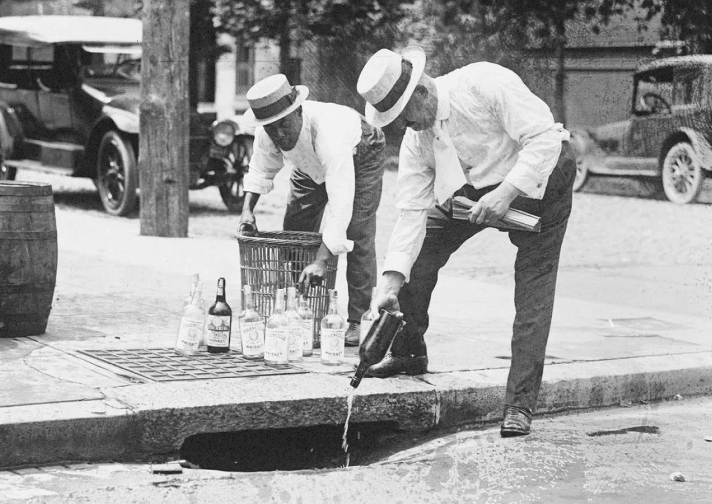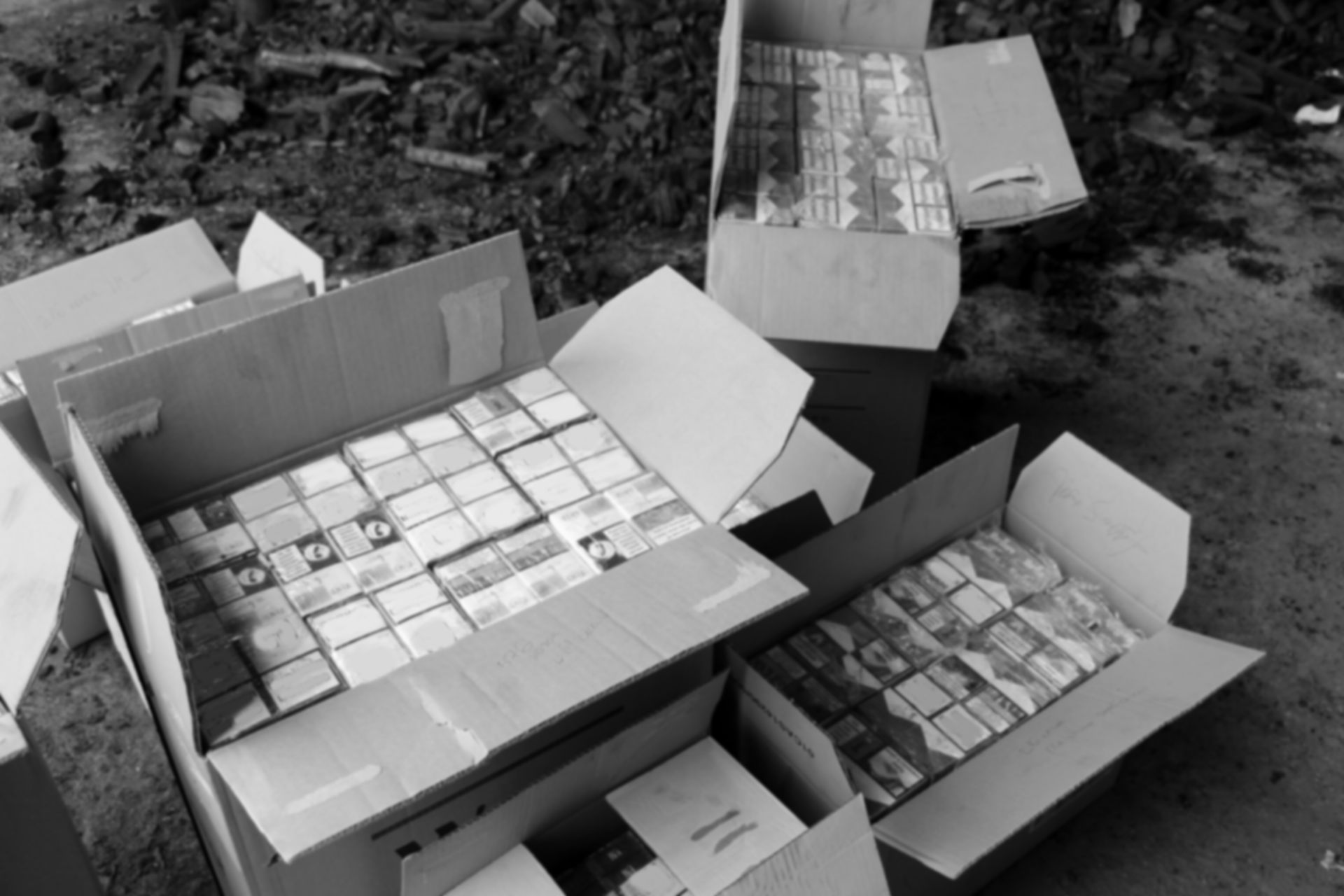The FDA
wants to
bring back
prohibition
If history is any guide, the results will be a disaster for America.
Prohibition Never
Works. Together
we can STOP it.
A CENTURY OF FEDERAL PROHIBITION
ALCOHOL
THE RESULT
Alcohol
Federal prohibition of alcohol from 1919-1933 put stores, taverns and restaurants out of business[1] and led to the establishment of underground markets and illegal venues throughout the United States. Alcohol prohibition increased smuggling and empowered organized crime. After just 13 years, prohibition was repealed by Constitutional Amendment.
Alcohol Prohibition Resulted in:
- Countless lives lost due to violence[2] and an average of 1,000 Americans killed each year during Prohibition from consuming tainted alcohol[3]
- The growth of powerful organized crime syndicates[4]
- Billions in lost tax revenue[5]
- Increased government corruption[6]
- Decreased trust in government as otherwise law-abiding citizens blatantly disregarded the law[7]




WAR ON DRUGS
Launched in 1970 by President Richard Nixon, the War on Drugs gained momentum over the next two decades.[8] Drug use continued despite the federal policy, and many young people of color were incarcerated and branded a criminal for life – losing years in prison and being permanently stripped of their right to vote. During the War on Drugs, one-fifth[9] of all those incarcerated were serving time for a drug-related charge. Despite aggressive government tactics and massive spending, the policy failed as states moved to decriminalize – and ultimately legalize – cannabis use over the past several years.
The War on Drugs Resulted in:
- A whole generation of young people locked up[10] in prisons and jails
- The militarization[11] of police forces around the country
- Heavily armed “no-knock raids”[12] on drug suspects
- Violent shootouts with police, killing not only suspects but also law enforcement personnel and innocent bystanders
- Distrust in government as drug-related corruption expanded




Flavored Tobacco Products
The FDA’s prohibition of flavored tobacco will take currently legal products for adults 21+ off the market[13] , eliminate legal pathways to purchase these products, and create illicit markets[14] to replace them. Like America’s earlier experience with prohibition, the FDA’s action will lead to increased crime and will undermine[15] law enforcement and the communities they serve. It also puts local retailers at risk, impacting jobs and forcing small community businesses to close shop. In states that have pursued similar policies, like Massachusetts, illegal markets and massive losses in tax revenue have followed. Massachusetts’ flavor ban has been such a failure that the state’s Illegal Tobacco Tax Force is now recommending that the legislature ban possession of menthol cigarettes.
The FDA’s prohibition of flavored tobacco will:
- Increase Crime
- Overburden Law Enforcement and Overcriminalize Communities of Color
- Destroy Retailers and Jobs, Eliminate Taxable Sales, and Create State and Local Budget Deficits


Increase Crime[16] by Creating New Illicit Markets for Tobacco Products
A ban on menthol cigarettes will leave 18 million adult menthol smokers with no legal access to the products they currently buy. Due to extreme taxes, Illegal cigarette sales are already a problem in the U.S., comprising as much as 21%[17] of the nation’s total cigarette market, according to the National Academies of Sciences.
Nearly a billion[18] packs of cigarettes were smuggled into the United States from Mexico in 2019 alone, and prohibition will make this problem worse. The U.S. Department of State[19] declared that “illicit trade in tobacco, including cigarettes, has been linked to the financing of terrorist organizations … and has been tied to drugs, weapons and money laundering.”
Criminalizing the sale of flavored tobacco products completely cedes the production, distribution and sale of those products to gangs and underground markets.[20] Not only will these criminal networks ignore age verification and sell to children, they can alter or adulterate products.
Overburden Law Enforcement and Overcriminalize Communities of Color
Criminalizing the sale and distribution of menthol cigarettes would force law enforcement organizations to spend valuable resources fighting illicit tobacco sales and divert attention away from more important priorities like violence, property crimes and,
The FDA’s prohibition will make currently legal tobacco products illegal – and all 50 states treat the sale and distribution of illegal tobacco products as a serious crime, with 44 states treating it as a felony and 37 states requiring mandatory minimum prison sentences for violators. Mere possession of illegal tobacco products is a crime in 36 states and the District of Columbia. Violators across the country would be subject to “three strikes” laws, the revocation of parole and probation, and the permanent loss of the right to vote for citizens and deportation for non-citizens.
The FDA’s prohibition would disproportionally impact communities of color, which is why the ACLU, the Drug Policy Alliance, and the National Association of Criminal Defense Lawyers oppose the ban[22] on flavored tobacco products.
Put Retail Sales – and the Taxes Generated by Those Sales – At Risk
Local convenience and grocery stores and other outlets could lose $28.3 billion in sales as a result of the FDA’s ban, destroying jobs and wages across the country. Menthol cigarettes also significantly support federal, state, and local budgets. This ban would put $14.8 billion of revenue at risk across all levels of government.
The FDA’s prohibition will remove the strict controls that currently exist throughout the legal and regulated supply chain, where licensed manufacturers, licensed importers, licensed wholesalers, and licensed retailers ensure that products comply with appropriate laws and that consumers are age-verified.
The FDA’s prohibition will put retailers out of business and put criminals in charge. And these criminals:
- Don’t care if they sell to underage buyers
- Don’t care if their products are FDA-regulated
- Don’t care if their products are adulterated or counterfeit
- Don’t pay taxes

 Close
Close
